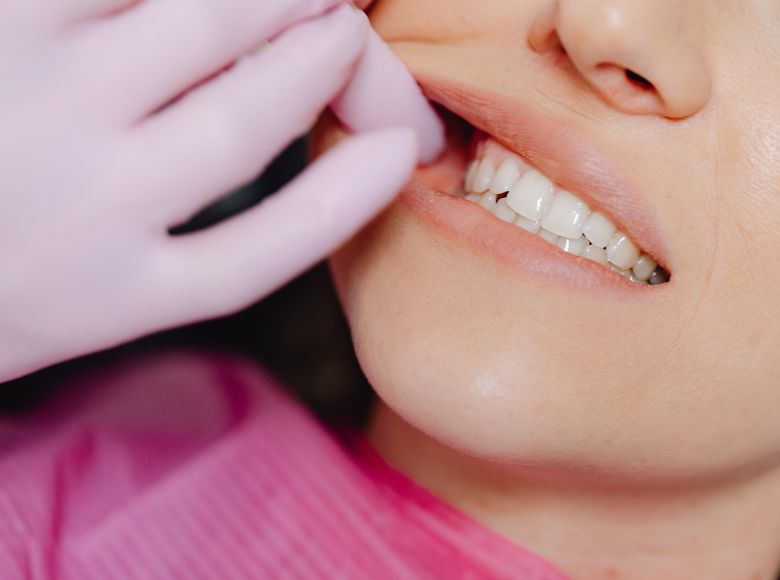Having a bright, white smile is something many people desire — it’s often associated with health, confidence, and good grooming. But for those who experience tooth sensitivity, the thought of whitening treatments can cause hesitation. If you’ve been Googling teeth whitening sensitive teeth, you’re certainly not alone.
Tooth sensitivity is a common condition that can make hot or cold foods uncomfortable, and the idea of applying bleaching agents to already sensitive teeth can seem daunting. However, professional treatments have evolved significantly and may offer solutions tailored for sensitive smiles.
In this blog, we’ll explore what causes sensitivity, how professional treatments can help, and what options exist for those concerned about discomfort during or after whitening.
Understanding the Link Between Teeth Whitening and Sensitivity
Before diving into the treatments themselves, it’s important to understand why sensitivity can occur — especially when whitening is involved.
Tooth sensitivity often happens when the protective enamel wears down or when the gums recede, exposing the softer inner layer of the tooth (dentine). This layer has tiny tubules that connect directly to the tooth’s nerve, which can be triggered by certain stimuli — including whitening agents.
Most teeth whitening products contain hydrogen peroxide or carbamide peroxide, which can temporarily increase tooth sensitivity by penetrating the enamel to break down stains. This effect varies from person to person, depending on individual enamel thickness, gum health, and past dental work.
Can Professional Whitening Help?
The short answer is yes — professional treatments are often the best option for people with sensitivity. Dentists understand the risks involved and can tailor the approach to reduce discomfort while still achieving visible results.
Here’s how professional options can make a difference:
1. Customised Treatment Plans
Unlike over-the-counter kits, professional whitening is not one-size-fits-all. Your dentist will assess your sensitivity level and overall oral health before beginning treatment. If you have concerns with teeth whitening sensitive teeth, this custom approach ensures a safer experience.
2. Desensitising Agents
Many dental practices use desensitising products such as fluoride gels, potassium nitrate, or special pastes before or after the whitening process. These help block the nerve signals in the teeth and minimise post-treatment sensitivity.
3. Controlled Application
During in-clinic whitening sessions, the dentist can apply the whitening gel in a controlled manner, avoiding gum contact and monitoring the strength of the peroxide used. This reduces the risk of irritation and unnecessary exposure.
4. Shorter Treatment Times
In-office whitening sessions are typically shorter in duration but more effective, meaning less time with the product on your teeth and therefore a lower risk of sensitivity compared to lengthy at-home kits.
At-Home Options Through Your Dentist
If you prefer to whiten your teeth at home but still want protection against sensitivity, your dentist can provide a custom take-home whitening kit. These include trays that fit your teeth perfectly and contain lower concentrations of bleaching agents than in-office treatments — making them gentler and more suited to those with sensitive teeth.
Some kits also include instructions for alternating whitening days or using enamel-rebuilding toothpaste in between applications.
Tips for Managing Sensitivity During Whitening
Here are a few additional tips to help manage teeth whitening sensitive teeth concerns:
- Use a toothpaste designed for sensitivity at least two weeks before beginning any whitening treatment.
- Avoid extremely hot or cold foods immediately after whitening, as your teeth may be more sensitive temporarily.
- Use a soft-bristled toothbrush to avoid further enamel wear.
- Limit acidic foods and drinks, such as citrus fruits and soft drinks, which can exacerbate sensitivity.
- Talk to your dentist if discomfort continues after treatment — they may recommend alternative methods or check for underlying issues.
Whitening Alternatives for Sensitive Teeth
If traditional whitening is not suitable due to high sensitivity or other dental conditions, there are still cosmetic options to improve the appearance of your smile:
- Enamel microabrasion for surface stains
- Cosmetic bonding to cover discolouration
- Porcelain veneers for long-term whiteness and protection
Your dentist will help you determine which option is right based on your specific goals and oral health needs.
When it comes to teeth whitening sensitive teeth, it’s all about balance — achieving a brighter smile without compromising your comfort. Professional whitening treatments are designed with care and precision, often making them the safest and most effective choice for people prone to sensitivity.
Instead of risking discomfort with off-the-shelf kits, speak to a trusted dental professional. With the right guidance, you can enjoy a radiant smile without the sting.









